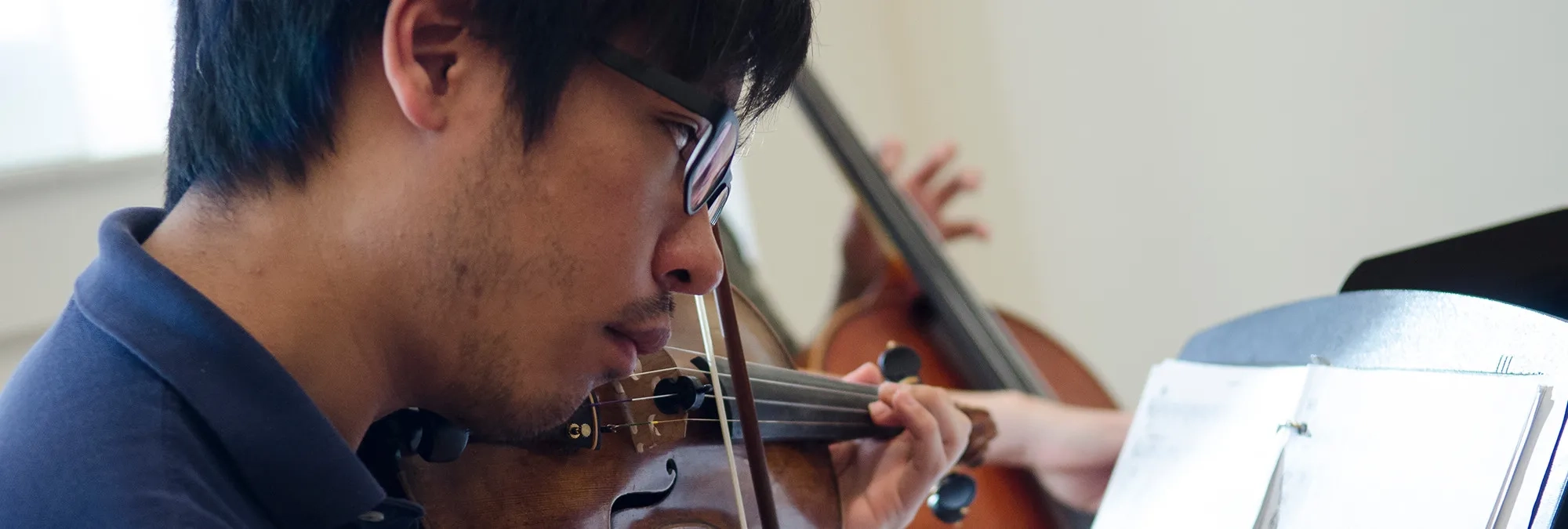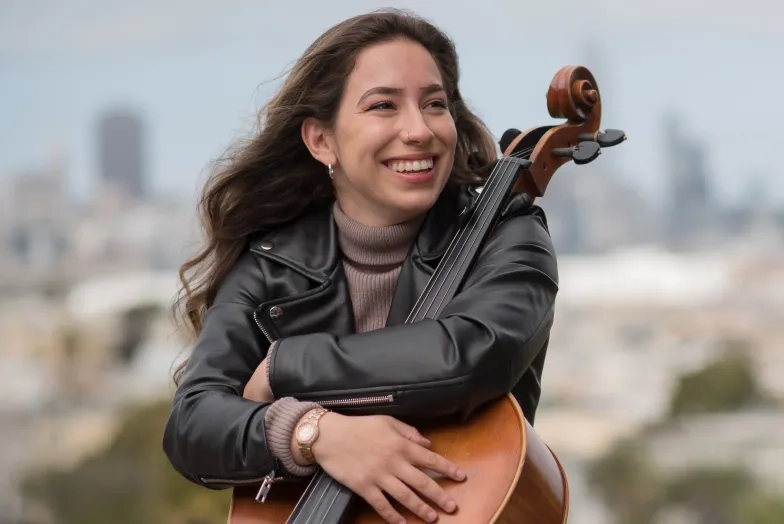Bachelor of Music
Not just growth—transformation
Bachelor of Music
The Bachelor of Music degree program at SFCM is one of the most robust and rewarding tracks of musical study available in the United States. Our approach is unlike that of any other conservatory. By combining academic study, one-on-one instruction, and performance opportunities with a jump-start in real-world professional experience, this four-year program immerses you in what it means to be a successful musician—and person—in the 21st century.
Certificate Program
The Certificate program is a one- or two-year program focusing on private lessons, performance classes, and humanities courses at the undergraduate level.
The Certificate is designed as an entry point for the Bachelor of Music degree program for students who have not met the minimum English proficiency score for the Bachelor of Music. The first year of the Certificate will be an immersion in English language learning in preparation for entering the Bachelor of Music program beginning the second year. With credits from the Certificate year transferring into the Bachelor of Music, the student will complete the degree within four years. Should a student choose not to transfer to the Bachelor of Music program, or they have not met the requirements for English proficiency, the second year of the Certificate program is meant as an intensive study of their instrument through ensemble playing and performance opportunities.
If you would like more information on the Certificate program please contact nccyl@fspz.rqhude.mcfs@ylppa .
You may find statistic and disclosure information on all non-degree programs on our Gainful Employment page.




